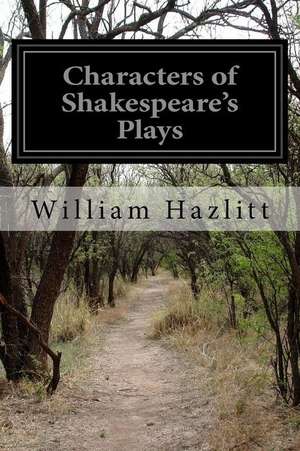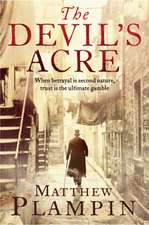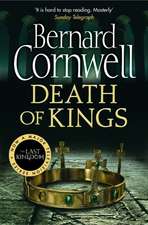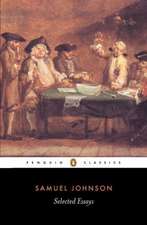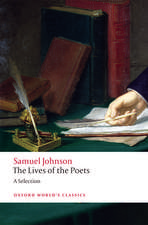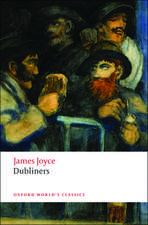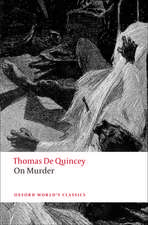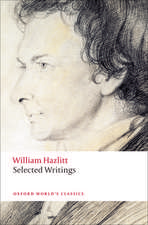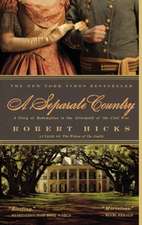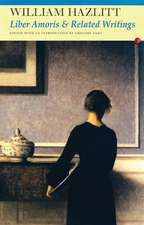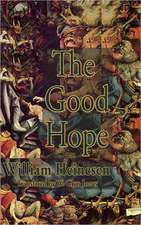Characters of Shakespeare's Plays
Autor William Hazlitten Limba Engleză Paperback
| Toate formatele și edițiile | Preț | Express |
|---|---|---|
| Paperback (10) | 69.96 lei 3-5 săpt. | |
| – | 69.96 lei 3-5 săpt. | |
| CREATESPACE – | 79.46 lei 3-5 săpt. | |
| CreateSpace Independent Publishing Platform – | 113.17 lei 3-5 săpt. | |
| – | 120.39 lei 3-5 săpt. | |
| – | 120.39 lei 3-5 săpt. | |
| CREATESPACE – | 127.75 lei 3-5 săpt. | |
| Binker North – 14 iul 1817 | 114.93 lei 6-8 săpt. | |
| Book Jungle – 26 apr 2009 | 170.96 lei 6-8 săpt. | |
| TREDITION CLASSICS – 31 oct 2011 | 187.31 lei 6-8 săpt. | |
| Cambridge University Press – 19 iul 2009 | 337.55 lei 6-8 săpt. |
Preț: 69.96 lei
Nou
Puncte Express: 105
Preț estimativ în valută:
13.39€ • 13.93$ • 11.05£
13.39€ • 13.93$ • 11.05£
Carte disponibilă
Livrare economică 24 martie-07 aprilie
Preluare comenzi: 021 569.72.76
Specificații
ISBN-13: 9781532942730
ISBN-10: 1532942737
Pagini: 170
Dimensiuni: 152 x 229 x 9 mm
Greutate: 0.24 kg
ISBN-10: 1532942737
Pagini: 170
Dimensiuni: 152 x 229 x 9 mm
Greutate: 0.24 kg
Notă biografică
William Hazlitt (10 April 1778 - 18 September 1830) was an English essayist, drama and literary critic, painter, social commentator, and philosopher. He is now considered one of the greatest critics and essayists in the history of the English language,[1][2] placed in the company of Samuel Johnson and George Orwell.[3][4] He is also acknowledged as the finest art critic of his age.[5] Despite his high standing among historians of literature and art, his work is currently little read and mostly out of print.[6][7] During his lifetime he befriended many people who are now part of the 19th-century literary canon, including Charles and Mary Lamb, Stendhal, Samuel Taylor Coleridge, William Wordsworth, and John Keats. The family of Hazlitt's father were Irish Protestants who moved from the county of Antrim to Tipperary in the early 18th century. Also named William Hazlitt, Hazlitt's father attended the University of Glasgow (where he was taught by Adam Smith),[9] receiving a master's degree in 1760. Not entirely satisfied with his Presbyterian faith, he became a Unitarian minister in England. In 1764 he became pastor at Wisbech in Cambridgeshire, where in 1766 he married Grace Loftus, daughter of a recently deceased ironmonger. Of their many children, only three survived infancy. The first of these, John (later known as a portrait painter), was born in 1767 at Marshfield in Gloucestershire, where the Reverend William Hazlitt had accepted a new pastorate after his marriage. In 1770, the elder Hazlitt accepted yet another position and moved with his family to Maidstone, Kent, where his first and only surviving daughter, Margaret (usually known as "Peggy"), was born that same yea
Descriere
Descriere de la o altă ediție sau format:
Characters of Shakespeare's Plays is an 1817 book of criticism of Shakespeare's plays, written by early nineteenth century English essayist and literary critic William Hazlitt. Composed in reaction to the neoclassical approach to Shakespeare's plays typified by Dr. Johnson, it was among the first English-language studies of Shakespeare's plays.
Characters of Shakespeare's Plays is an 1817 book of criticism of Shakespeare's plays, written by early nineteenth century English essayist and literary critic William Hazlitt. Composed in reaction to the neoclassical approach to Shakespeare's plays typified by Dr. Johnson, it was among the first English-language studies of Shakespeare's plays.
Cuprins
Introduction; Preface; 1. Cymbeline; 2. Macbeth; 3. Julius Caesar; 4. Othello; 5. Timon of Athens; 6. Coriolanus; 7. Troilus and Cressida; 8. Antony and Cleopatra; 9. Hamlet; 10. The Tempest; 11. A Midsummer Night's Dream; 12. Romeo and Juliet; 13. King Lear; 14. Richard II; 15. Henry IV; 16. Henry V; 17. Henry VI; 18. Richard III; 19. Henry VIII; 20. King John; 21. Twelfth Night; or, what you will; 22. The Two Gentlemen of Verona; 23. The Merchant of Venice; 24. The Winter's Tale; 25. All's Well That Ends Well; 26. Love's Labour's Lost; 27. Much Ado About Nothing; 28. As You Like It; 29. The Taming of the Shrew; 30. Measure for Measure; 31. The Merry Wives of Windsor; 32. The Comedy of Errors; 33. Doubtful plays of Shakespeare; 34. Poems and Sonnets.
